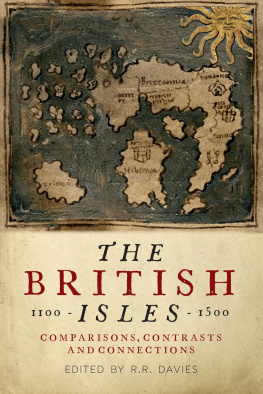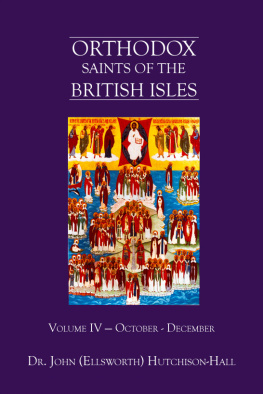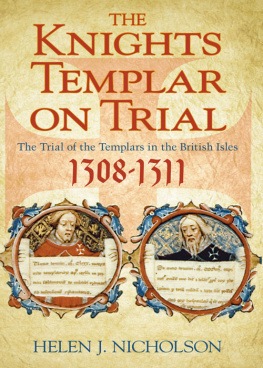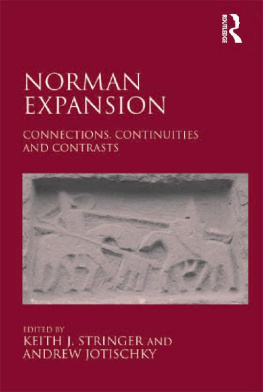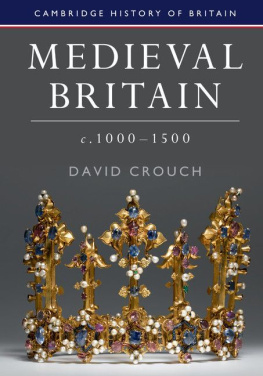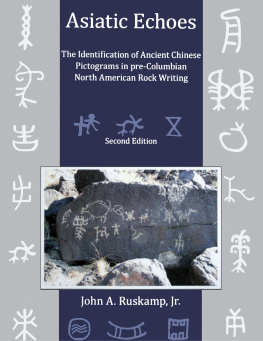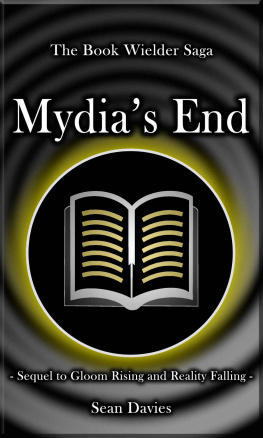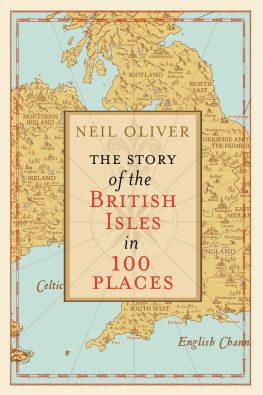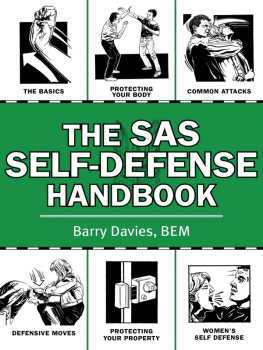The British Isles 11001500
The British Isles
11001500
Comparisons, Contrasts
and Connections
Edited by
R. R. DAVIES

This eBook was published in Great Britain in 2021 by John Donald,
an imprint of Birlinn Ltd
Birlinn Ltd
West Newington House
10 Newington Road
Edinburgh
EH9 1QS
www.birlinn.co.uk
First published in Great Britain in 1988 by John Donald
Copyright The Editor and Contributors severally 1988
eBook ISBN 978 1 78885 438 2
British Library Cataloguing-in-Publication Data
A catalogue record for this book is available on request from the British Library
All rights reserved. No part of this publication may be reproduced, stored, or transmitted in any form, or by any means electronic, mechanical or photocopying, recording or otherwise, without the express written permission of the publisher.
The right of the editor and contributors to be identified as the authors of this book has been asserted by them in accordance with the Copyright, Designs and Patents Act 1988.
ACKNOWLEDGEMENTS
The Editor wishes to acknowledge the generous grant from the British Academy which made the conference at Gregynog in September 1986 possible. He also wishes to thank the contributors to this volume for their promptness, forbearance and ready co-operation.
CONTRIBUTORS
| R. R. Davies: | Professor of History, University College of Wales, Aberystwyth |
| A. A. M. Duncan: | Professor of Scottish History, University of Glasgow |
| Robin Frame: | Reader in History, University of Durham |
| Alexander Grant: | Lecturer in History, University of Lancaster |
| James Lydon: | Lecky Professor of History, Trinity College, Dublin |
| Huw Pryce: | Lecturer in History, University College of North Wales, Bangor |
| W. David H. Sellar: | Senior Lecturer in the History of Scots Law, University of Edinburgh |
| J. Beverley Smith: | Sir John Williams Professor of Welsh History, University College of Wales, Aberystwyth |
MAPS AND DIAGRAMS
ABBREVIATIONS
All works cited published in London, unless otherwise stated.
| APS | The Acts of the Parliaments of Scotland, ed. T. Thomson and C. Innes (Record Commission, 181475) |
| BBCS | Bulletin of the Board of Celtic Studies (Cardiff, 1921) |
| BL | British Library |
| CCIR | Calendar of Close Rolls 12721509 (18921963) |
| CDI | Calendar of documents relating to Ireland 11711307, ed. H. S. Sweetman and G. F. Handcock (187586) |
| CDS | Calendar of documents relating to Scotland 11081509, ed. J. Bain (Edinburgh, 18818) |
| CPR | Calendar of Patent Rolls 12321509 (18911971) |
| Cal. | Calendar |
| EHR | The English Historical Review (1886) |
| Episc. Acts | Episcopal Acts and Cognate Documents relating to Welsh Dioceses 10661272, ed. J. Conway Davies (Cardiff, 19468) |
| Giraldus, Opera | Giraldi Cambrensis Opera, ed. J. S. Brewer, J. F. Dimock and G. F. Warner (Rolls Series 186191) |
| IHS | Irish Historical Studies (Dublin, 1938) |
| JR | Juridical Review (1891) |
| JRSAI | Journal of the Royal Society of the Antiquaries of Ireland (Dublin, 1892) |
| NHI, II | A New History of Ireland. II, Medieval Ireland 11691534, ed. A. Cosgrove (Oxford, 1987) |
| PRIA | Proceedings of the Royal Irish Academy (Dublin, 1836) |
| PSAS | Proceedings of the Society of Antiquaries of Scotland (Edinburgh, 1851) |
| Pat.R. 121625 | Patent Rolls of the reign of Henry III 121625 (19013) |
| RMS | Registrum Magni Sigilli Regnum Scotorum, ed. J. M. Thomson et al. (Edinburgh, 18821912) |
| RRS | Regesta Regum Scottorum (Edinburgh, 1960) |
| Rot. Chart. | Rotuli Chartarum in Turri Londinensi asservati, ed. T. D. Hardy (Record Commission, 1837) |
| Rot. Litt. Claus. | Rotuli Litterarum Clausarum in Turri Londinensi asservati, ed. T. D. Hardy (Record Commission 183344) |
| Rot. Litt. Pat. | Rotuli Litterarum Patentium in Turri Londinensi asservati, ed. T. D. Hardy (Record Commission, 1835) |
| SHR | Scottish Histoncal Review (Glasgow, 1908) |
| TRHS | Transactions of the Royal Historical Society (1872) |
| Trans. | Transactions |
| WHR | Welsh History Review (Cardiff, 1960) |
CONTENTS
INTRODUCTION
R. R. Davies
The essays published in this volume consist, in a revised form, of eight of the ten papers delivered at a Colloquium held at Gregynog Hall, Newtown, Powys in September 1986. Since collections of this kind often appear to be miscellaneous, not to say ramshackle, in character, it may be as well to try to explain briefly the raison behind the Colloquium and, thereby, the volume. The first aim may be broadly characterised as fraternal and comparative. Historians in England, Ireland, Scotland and Wales work very considerably, though not exclusively, within the historiographical traditions of their respective countries; they tend to write for, and to discuss with, fellow historians working within the same tradition. For example, it has been unusual, at least until fairly recently, for historians of medieval England to feel obliged to learn in any depth about the histories of Ireland, Scotland and Wales, except possibly at those moments when they impinge on the history of England (and then their comments sometimes reveal an outdated simplicity which they would be the first to deplore within their own subject). Historians of medieval Ireland and the same is true of Scotland and Wales have often likewise given the impression that they wish to conduct a dialogue only with themselves and seem to have felt unwilling or unable to communicate the fascination and significance of their subject to a wider historical audience. Fortunately there have been signs of a shift away from such isolationist habits in recent years. This volume hopes to promote that shift further. There are few more salutary intellectual exercises than being asked to explain and defend ones academic position and pursuits to an outsider. Opening windows into other peoples gardens might help us to notice issues which have been undercultivated in ours or neglected in theirs. It might also prompt comparisons, connections and contrasts which might not occur to us by gazing exclusively and introspectively at our own patch. That, surely, is one important way in which a historiographical tradition might grow and change direction.
The second aim of the Colloquium and the volume may be described as integrative. For a variety of reasons, deeply embedded inter alia in intellectual training and academic divisions, the history of the British Isles has generally been fractured into the discrete histories of its four constituent countries. It is not difficult to understand or indeed to defend such a practice (Davies, p. 10). Such a British approach does not necessarily have validity for all subjects or all periods, and it is at best complementary, not alternative, to approaches on national lines; but it is in the belief that it is an approach well worth exploring further that this volume was conceived.
Next page
